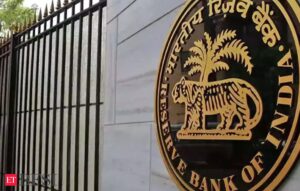Finance Minister Nirmala Sitharaman on Tuesday will propose in the Lok Sabha that Finance Bill for the financial year 2024-2025, be taken into consideration and passing, as per Lok Sabha’s agenda for the day.
The Finance Bill needs to be approved by both houses of the parliament to become a law and give effect to the Budget proposals.
Nirmala Sitharaman presented the Budget for FY25 on July 23 and discussion in both houses are underway.
The budget session of Parliament began on July 22 and will conclude on August 12.
The Lok Sabha had passed the The Appropriation (No.2) Bill, 2024, which authorises the government to use certain sums out of the Consolidated Fund of India for the expenditure of the central government for the financial year 2024-25.
The said bill entails authorisation of expenditure of nearly Rs 140 lakh crore.
What was proposed in the full budget?
In her 7th straight Union Budget, Nirmala Sitharaman announced hike in Standard Deduction to Rs 75,000, albeit for the new tax regime. The Finance Minister also announced revision in the new tax regime slabs.
A hike in securities transaction tax (STT) in the futures and options (F&O) segment was also announced. As per the latest changes, rates of STT on sale of an option in securities have been hiked from 0.0625 per cent to 0.1 per cent of the option premium, and on sale of a futures in securities from 0.0125 per cent to 0.02 per cent of the price at which such futures are traded.
However, what took the centre stage was raising the capital gains tax for shares from 10% to 12.5%, which will slightly reduce post-tax returns by 2.5%.
Also Read: LTCG Tax: Govt weighing proposals to tweak its big tax move in Budget
Budget 2024 also proposed eliminating indexation benefits for homeowners. This change means that homeowners who profit from selling their property will now have to pay tax on the entire profit amount, rather than on the inflation-adjusted profit.
Previously, indexation benefits allowed homeowners to increase the property’s cost basis to account for inflation, thereby reducing the net profit and the associated tax liability.
The elimination of indexation has raised fears of a significant tax burden for taxpayers and the potential for increased illicit financial activities in property deals. However, the Income Tax department has refuted such claims and called the move ‘advantageous’.
The Budget also proposed to provide incentive to 30 lakh youth entering job market by providing 1 month PF contribution, addressing the unemployment debate.










